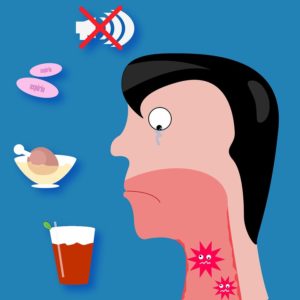 It is the party season and much as one would love to hog and make merry, in this day and age of ubiquitous packed foods, there is need to exercise caution. Pregnant women in particular need to be careful about what they consume because of an infection that is common in the west but not talked about that frequently in India. Listeriosis caused by the bacteria Listeria monocytogenes, commonly classified as a “hard germ” because of its ability to withstand large variations in conditions, is on the rise but awareness levels remain low.
It is the party season and much as one would love to hog and make merry, in this day and age of ubiquitous packed foods, there is need to exercise caution. Pregnant women in particular need to be careful about what they consume because of an infection that is common in the west but not talked about that frequently in India. Listeriosis caused by the bacteria Listeria monocytogenes, commonly classified as a “hard germ” because of its ability to withstand large variations in conditions, is on the rise but awareness levels remain low.
What is Listeriosis?
Listeria infection or listeriosis is a serious foodborne illness, most likely to sicken pregnant women and their newborns, adults aged 65 or older, and people with weakened immune systems. However, healthy people can also develop the disease by ingestion of contaminated food. Pregnant women are 10 times more likely to get the infection. The bacteria is more common in packed food items. In India the risks are higher because of lax packaging and powercuts that may expose such items to long durations at higher temperatures increasing risk of contamination.
What are the symptoms?
In early stages of infection, human listeriosis often displays nonspecific flu-like symptoms (e.g., chills, fatigue, headache, and muscular and joint pain) and gastrointestinal symptoms such as nausea or diarrhoea. If infection spreads to the nervous system, symptoms such as headache, stiff neck, confusion, loss of balance, or convulsions can occur. Infected pregnant women may experience only a mild, flu-like illness; however, infections during pregnancy can lead to miscarriage or stillbirth, premature delivery, or infection of the newborn. Without appropriate antibiotic treatment, it can develop into septicemia, meningitis, encephalitis, abortion and, in some cases, death.
What foods are most likely to get contaminated?
Food items like unpasteurized milk, undercooked poultry and under processed dairy items like soft cheese, raw fish, raw vegetables may be contaminated by Listeria. The bacteria is found mostly in water, sewage and soil. What makes it difficult to eradicate is its ability to multiply at high salt concentrations (10% sodium chloride or common salt), in a broad pH range (pH 4.5 to 9) and a wide range of temperatures (0 to 45°C). pH is a measure of acidity of a medium. Studies have found that Listeria is able to withstand even freezing temperatures. It thrives in refrigerators and contaminates frozen meat and processed foods as well. Listeria is one of the pathogens listed by the government of India’s Food safety and Standards Regulation 2011, meaning that every food product has to be tested for contamination. However, the ubiquity of Listeria in food processing, distribution and retail environments and its ability to grow in any environment makes it difficult to manage and regulate. Centre for disease control and prevention, USA estimates that Listeria is the third leading cause of death from foodborne illness, or food poisoning, in the United States but In India due to less awareness about the pathogen, many incidences are misdiagnosed or not documented.
How to avoid listeria infection ?
It is difficult in the present day to avoid eating ready-to-eat food items and therefore risk of acquiring listeriosis is high. However, one can avoid listeriosis by eating only cooked and hot foods. Avoid unpasteurized milk and milk products,cold cut meats and sea foods, raw eggs, cheese and salads, canned foods and eat raw fruit or vegetables only when thoroughly washed with salt water or potassium permanganate.


